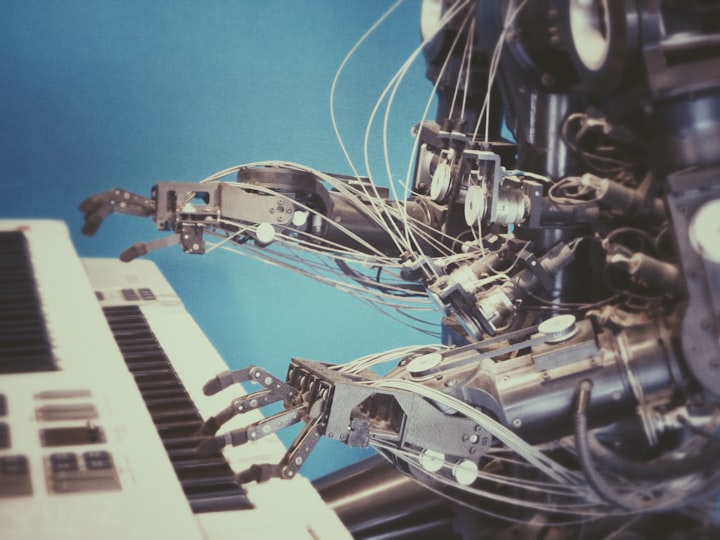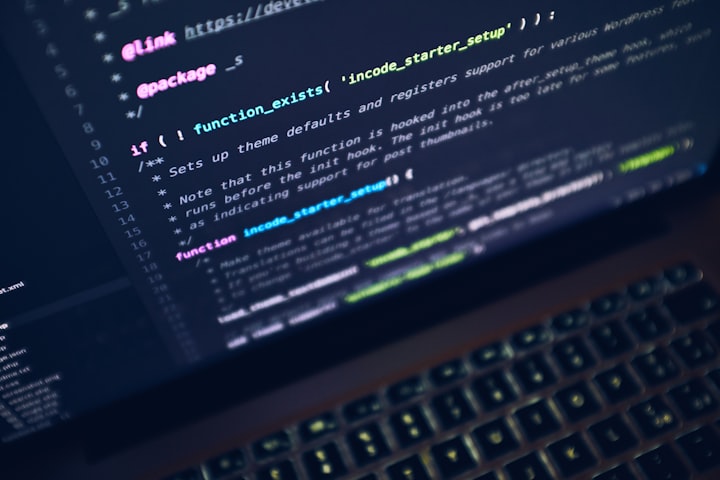Preparing for the Future: What Jobs AI Will Replace in 2023
Jobs that will be Replaced by AI

Artificial intelligence (AI) has been transforming the workforce for several years now, and its impact is only expected to grow in the coming years. As more and more companies turn to AI to automate routine tasks and increase efficiency, the job market is likely to undergo significant changes in the near future.
In 2023, we can expect to see certain jobs being replaced by AI at a faster pace than ever before. The question on many people’s minds is, which jobs are most likely to be affected? In this article, we’ll take a closer look at the jobs that are most vulnerable to automation and explore ways that individuals and businesses can prepare for the changes.
Whether you’re an employee who wants to stay ahead of the curve or a business owner who wants to stay competitive in a rapidly changing market, understanding the impact of AI on the job market is crucial. So, let’s dive in and explore what the future may hold.
Jobs that AI will likely replace in 2023
The rise of AI has the potential to automate several jobs that are currently performed by humans. The use of artificial intelligence (AI) in the workforce has grown rapidly in recent years, and this trend is expected to continue. While AI has the potential to bring many benefits to businesses and individuals, it also raises concerns about the impact on jobs. In particular, there are certain types of jobs that are more vulnerable to automation than others. Here are some of the jobs that are most vulnerable to automation:
Manufacturing Jobs: AI has already made significant inroads in manufacturing, with robots being used to perform repetitive tasks and operate machinery. With the increasing sophistication of AI and robotics, it’s likely that more manufacturing jobs will be automated in the coming years.
- Quality control inspectors
- Assembly line workers
- Material handlers
- Machine operators
- Welders
- Packaging and labeling workers
- Inventory clerks
- Maintenance workers
- Data entry clerks
- Shipping and receiving clerks.
Customer Service Jobs: AI-powered chatbots and virtual assistants are becoming increasingly common in the customer service industry. These tools can handle basic customer inquiries and support, reducing the need for human customer service representatives. In 2023, we can expect to see more customer service jobs being automated, especially in industries that rely heavily on call centers.
- Call center representatives
- Chat support representatives
- Email support representatives
- Virtual assistants
- Receptionists
- Order entry clerks
- Technical support specialists
- Social media managers
- Data entry clerks
- Appointment schedulers.
Transportation Jobs: Self-driving vehicles have been in development for several years, and we’re already seeing some early adopters on the roads. While it may take some time for self-driving cars and trucks to become mainstream, they’re likely to replace many driving jobs once they do.
- Data entry clerks
- Truck and delivery drivers
- Taxi and rideshare drivers
- Railroad workers
- Shipping and receiving clerks
- Dispatchers
- Logistics coordinators
- Warehouse workers
Data Entry and Analysis Jobs: AI algorithms can analyze large amounts of data much faster and more accurately than humans can. As a result, jobs that involve data entry and analysis, such as bookkeeping and accounting, are at risk of being automated in the near future.
- Data entry clerks
- Data entry clerks
- Bookkeepers
- Financial analysts
- Market researchers
- Actuaries
- Insurance underwriters
- Loan officers
- Claims adjusters
Jobs that AI is less likely to replace in 2023
While some jobs are at risk of being replaced by AI, others are less vulnerable to automation. Here are some jobs that are less likely to be automated in 2023:
Jobs that require empathy and social skills: Jobs that require empathy and social skills, such as nursing, counseling, and teaching, are less likely to be automated. These jobs require human-to-human interaction and emotional intelligence, which AI is not yet able to replicate.
Creative Jobs: Jobs that require creativity and originality, such as writing, graphic design, and advertising, are also less likely to be automated. While AI can assist in some aspects of these jobs, such as data analysis and content creation, it’s unlikely to replace the human touch that is required for truly creative work.
Jobs that require physical dexterity: Jobs that require physical dexterity, such as plumbing, carpentry, and gardening, are also less likely to be automated. These jobs require a combination of manual skills and problem-solving abilities that are difficult for AI to replicate.
How to prepare for the changes
As the job market evolves with the rise of AI, it’s essential for individuals and businesses to be proactive in preparing for the changes. Here are some suggestions:
For individuals who may be at risk of losing their jobs to AI:
Upskilling and Reskilling: One of the best ways to stay ahead of the curve is to learn new skills that are in demand. Consider taking courses or pursuing certifications in fields such as data analysis, artificial intelligence, or cybersecurity.
Pursuing Careers in Fields that are Less Likely to be Automated: As we’ve seen, certain fields are less vulnerable to automation than others. Consider pursuing careers in these fields, such as healthcare, education, or creative industries.
Building a Strong Professional Network: Building a network of contacts in your industry can help you stay informed about changes in the job market and connect with potential employers.
For businesses that may be implementing AI:
Training Employees to Work Alongside AI: AI is not intended to replace human workers entirely but rather to complement their work. Providing training to employees to work alongside AI can help them develop new skills and remain relevant in a changing job market.
Developing New Job Roles that Complement AI: As AI takes on more routine tasks, businesses can develop new job roles that require skills that are difficult for AI to replicate, such as creativity, empathy, and critical thinking.
Investing in Employee Retention Strategies: As the job market evolves, it’s essential for businesses to retain their top talent. Investing in employee retention strategies, such as offering flexible work arrangements and competitive compensation packages, can help businesses retain their best employees.
Preparing for the changes brought by AI in the job market can be a daunting task, but by being proactive and taking steps to upskill, reskill, and adapt to new roles, individuals and businesses can stay ahead of the curve and thrive in a changing landscape.
____________________________________________________
In conclusion, as AI continues to advance, it’s becoming increasingly evident that it will have a significant impact on the job market in 2023 and beyond. In this article, we’ve identified the jobs that are most likely to be replaced by AI and those that are less vulnerable to automation. We’ve also provided suggestions for individuals and businesses to prepare for these changes, such as upskilling, pursuing careers in less vulnerable fields, and investing in employee retention strategies.
It’s important to recognize that the rise of AI in the job market is not all doom and gloom. With proper preparation, individuals and businesses can take advantage of the new opportunities that arise, such as the development of new job roles and the ability to work alongside AI.
In the end, the key to thriving in a changing job market is to be proactive, adaptable, and willing to learn new skills. By doing so, we can ensure that we remain relevant and valuable contributors to the workforce, even as the role of AI in the workplace continues to evolve.
About the Creator
Andrew Porter
My name is Andrew Porter and I am a Freelancer, Graphic Designer, Researcher and Copywriter from Maldives.






Comments
There are no comments for this story
Be the first to respond and start the conversation.